Charlies-day-off - Wannabe Studyblr
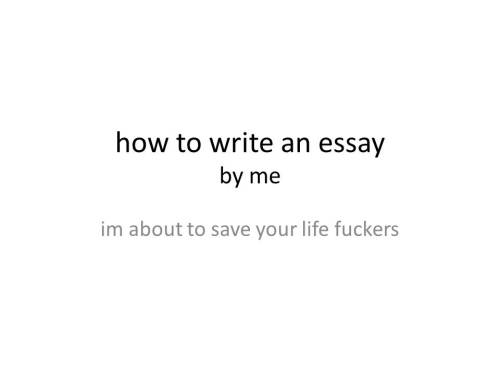
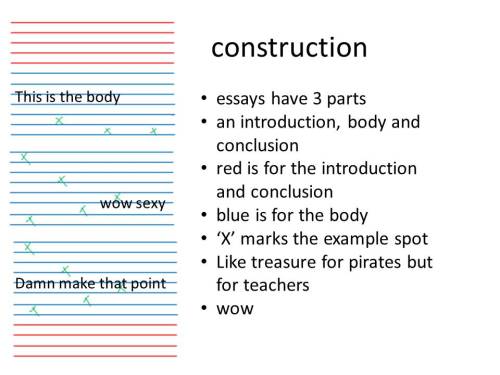

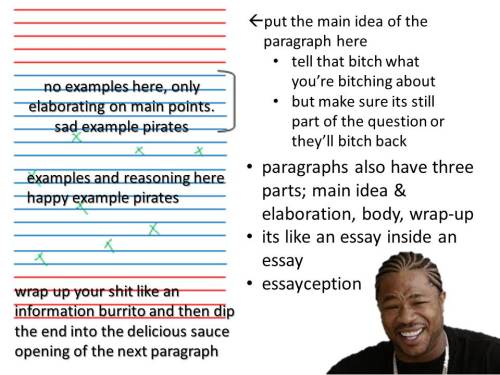
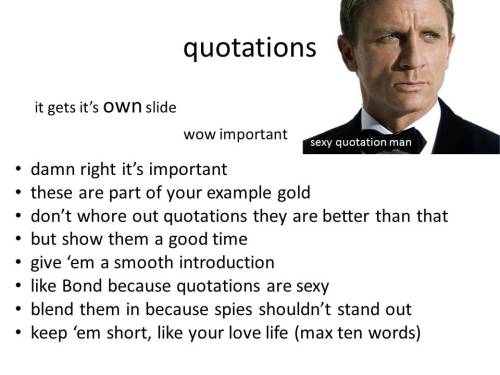
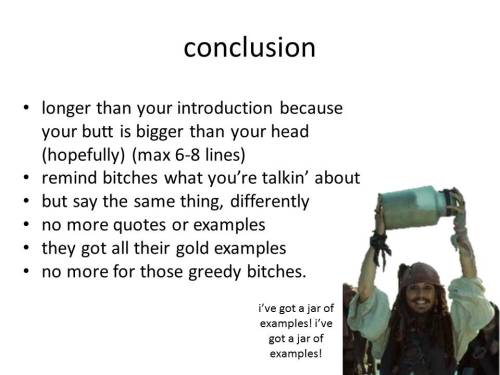
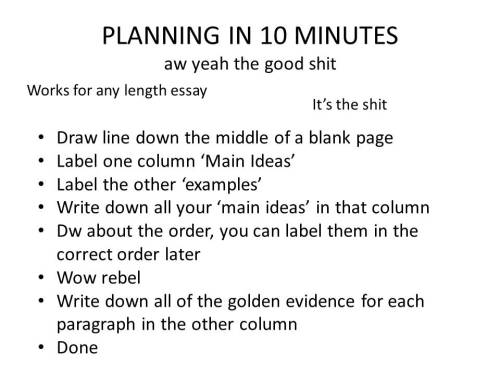
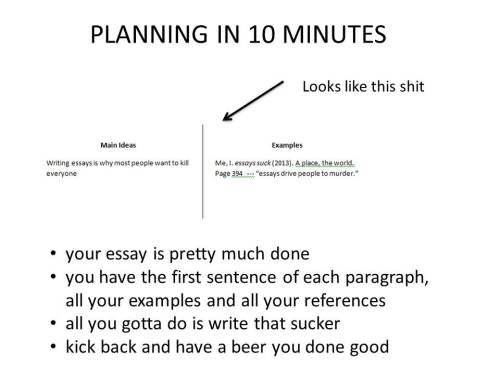
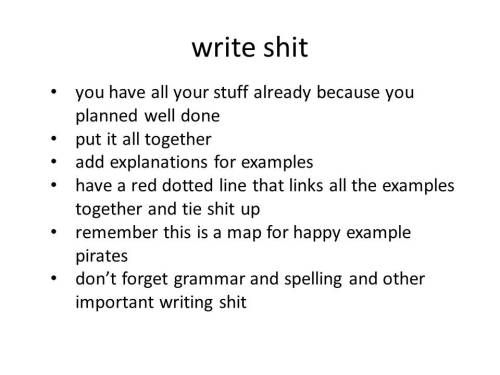

More Posts from Charlies-day-off and Others

In this post, I’m going to talk about the study methods that have worked for me and that I learned during my time at UCLA!
(see another post like this about being healthy here)
Short Term Productivity
Use a stickynote/index card and write a couple goals for today only. Don’t write too many or you will feel overwhelmed! Stick it on your laptop or planner or notebook (somewhere you will see it)
Have a whiteboard at your desk and write down things you need to remember (like a simple equation or some vocab)
While waiting for something (the bus, your coffee, the shower to warm up) have something to recite in your head (probably something you already know, but would like to reALLY KNOW)
When you read, try to tie big concepts to things you would remember easily (like acronyms or symbols) like for example i remember gen chem oxidation as OIL RIG: Oxidation is Loss (of electrons) and Reduction is Gain (of electrons) and I remember the first four unordinary hydrocarbons from Me Eat Peanut Butter (lmao): Methane, Ethane, Propane, Butane
Longer Term Productivity
Plan out your weeks!!! Plan when you will study on each day of the week and keep track of due dates
Make it a habit to do homework/assignments AS SOON AS YOU CAN (like right after you snack or something after classes)
Try not to think about how long you will study and rather think about the number of topics you will study
Don’t stop until you feel confident in your knowledge OTHERWISE YOULL JUST LOSE IT IT ALL
Keep your notes organized because you never know when something is gonna bite you in the butt again in the future
Review everyday. Like, Serioouslyyyy. It helps a lot.
Read before going to bed instead of being on your phone for 400 hours :C I THINK ITS TRUE THAT THE STUFF YOU READ BEFORE BED STAYS WITH YOU BETTER BC YOU GET TO SLEEP ON IT
Try to keep your area quiet or have only white background noise because if someone is talking about the weather and you’re studying math, best believe you’ll only remember the weather
Reading a Textbook
Most of the time, you don’t need to read the introduction paragraphs.
Read the bolded titles to see what you will be getting into
Before class you can skim lightly!! It will help you not feel lost in class
AFTER CLASS you will now FOCUS YOUR READING ON WHAT WAS SAID IN CLASS because most of the time, class-covered topics ARE THE MOST IMPORTANT! save yoself some time!!
When reading after class, do NOT just read. If you go over something that makes you go ??? in even the slightest way, read it again to understand. Look it up. Do it in THAT moment because you’re gonna forget to do it later.
If you don’t wanna read the whole darn book because ur lazy (like me) or you are cramming, READ!! THE!! SUMMARY!!!
The back of the book might have some seriously useful appendixes
Try not to skip the diagrams and pictures lol they’re there for a reason
Taking Notes in Class
dont be on your phone or whatever during class time Like actually PAy attention because if you learn it now, you won’t have to try to learn it again later (you can be on your phone later)
Take down everything written on the boards FOR SURE because if the professor/teacher thinks it’s important to write it, you better think it’s important too
Be an engaged listener! Don’t let it slide straight thru ur head
Try not to scribble your notes so you can read it later
Make CLEAR HEADERS for the topics so you can find those notes quickly
Def make friends in class in case you miss something on the notes ://
Doing Practice Problems and Homework
Get yoUR HOMEWORK DONE FIRST OF ALL
Homework is seriously a great study tool because your instructor assigned that FOR A REASON (aka it’s prob gonna be tested on)
Try to know what you are doing before you start the homework so that you don’t feel lost as heck doing it
When doing practice problems, if you have the answers, don’t be afraid to look at the answer the first time around if you don’t know how to do it. IVE SELF TAUGHT MYSELF SOOOOO MUCH by just looking at the answer to a question.
DONT RELY ON THE ANSWERS THO
Don’t memorize how to do the practice problems, you should memorize the method of solving the problem and understand each step clearly (and understand WHY you do that step!!!) just in case the test pulls some funky stuff on you
The more you can do, the better. But don’t be sleepy and do them because you won’t really retain anything
Other Random Things
My organic chem professor actually did a funny study on sleep and test scores. He said on his final exam he asked “How many hours of sleep did you get last night?”
and like obviously the more hours of sleep reported, generally the higher the student scored on the exam
SLEEEEPING IS GOOD FOR YOUR LEARNING
WHEN YOU SLEEP AND HIT THE REM CYCLE, YOUR BRAIN PROCESSES THE INFORMATION BETTER and it will really stay with you. So yall need to sleep. Don’t do the all nighters. You won’t remember anything
anyways like nike you should Just Do It
I hope you guys find this useful!! Remember that everyone has different needs and preferences, so take these tips as just tips and not rules!! Experiment with things, see what you like best, see what gives you the best scores.
Good luck with everything~ thank you for reading!
things ive heard people say in class:
“what if i just straight up break down in class and scare the shit out of ms neo so that she’ll postpone the test?”
“is it too early if i have a breakdown in january?” “its the second week, man.” “i know.”
“let’s all just collectively skip the national exams, fuck the system!” *aggressive cheering*
in a really choked up voice, “i have rights.”
“what if i become a monk? do monks have to take exams?”
“in this context, what does ‘rapid’ mean?” “FAST AND FURIOUS”
“did y’all do the chem homework?” *collective ‘no’s* “alright, good. nobody be a wimp and do their homework, alright? if we’re fucked, we’re all fucked together.”
“wait, you mean to say that this school still teach fun stuff like music??”
*scandalised gasp* “you stole my circle template’s virginity!” “all i did was hook a finger through one of the holes!” “exactly!”
“i bought this $2 knee guard just because i want to pretend that i’m injured so that i can sit out of PE.” [slides knee guard on] “i have three consecutive tests after this and lord knows i need all the extra study time that i can get.”
in an increasingly panicked voice, “i can’t just do my lit homework in 30mins!” “well, i did.” “what did you put for characterisation and further analysis?” “i said the protagonist was a fuckboy, and then proceeded to write 3 paragraphs and a conclusion consisting of utter bullshit on why he’s a fuckboy.”
“don’t they call people from Germany, germanese?” said by a top student.
“i think i’m a hermaphrodite.”
“fuck, i hate this. can i just be an escort? or have like 67 sugar daddies?”
in the middle of physics class: “i’m leaving, i’m fucking leaving. i’m going down to the canteen to buy takeouts of 3 fishball noodles. y’all want anything?”
“i want the saddest pepe the frog meme you can find as our class logo.”
“i found a salsa dip in my bag, anyone have some chips?” [a girl sighs, puts down her calculator and reaches into her sports bag] “i do.”
worst part of adulthood so far is definitely the fact that people have the ability to contact me and i have to respond in a timely manner

hey friends!! i’m starting to get a lot of requests about chemistry and since i recently started studying the basics of chemistry i wanted to help all of you [and myself] out by making a chemistry masterpost, so here it is :]
studying chem
how 2 study general chemistry
ten ways to pass ur next chem exam
chem study hints
tips for studying chemistry
lecture notes
ap chem notes
how 2 write notes
fun stuff kinda??
the periodic table of elements
fun thing about moles
learn about women in chemistry!!!!
chemistry timeline
books + things
best chem books on amazon
best chem books on goodreads
for general readers
for the college student
links + website resources
crash course: chemistry
chemistry on khanacademy
sparknotes chemistry
chem collective
royal society of chemistry
high school chem
careers in chemistry
what can i do with a degree in chemistry?
a future in chemistry
why study chemistry?
my masterposts
notes, studying, and self-study resources
self-study resources
supplies
igcse resources
improving your handwriting
how to studyblr
literature masterpost
organisation
aesthetically pleasing notes
annotating
studying a foreign language
really great apps
math
college + uni
motivation
biology
space!!!!
+ more
hope this helps you all <3 good luck fellow chemistry students + i hope you get where you truly want in life!!! if you wish to talk to me or request a masterpost, just message me!!
College Note-Taking System

Having cohesive and effective notes is one of the key skills I think one should have, especially in an academic setting. When you’re receiving a ton of information each day, you want to be able to keep track of that and remember what you’ve learned. I’m constantly trying out ways to make my note-taking more effective and tailored to my needs. Here’s what my note-taking system looks like so far.
Quick note: click on the images for better quality!
Class Notes
Taking notes in class is an invaluable way to keep track of the new knowledge you’ve gained. However, depending on the mode in which the lecture material is conveyed, I take my notes differently. Here’s a summary of how I take my notes for each type of lecture, as well as some examples from the classes I’m taking now.

Slides (e.g. Macroeconomics)
Macroeconomics is a class in which you should be able to intuitively understand a lot of concepts but also remember a lot of things. Because of this, I’ve tailored my note-taking method and habits to achieve that goal.
I write my notes by hand because handwriting is more effective in committing things to memory.
As for what I actually do - and this is what I’ve done for other classes in which the professor/lecturer uses slides:
Read/skim over the slide.
Read each bullet point as the professor goes through them.
Copy it down if it’s straightforward or write it down in a structure and diction that I understand better (not necessarily in my own words - sometimes it’s just restructuring, e.g. splitting things up or joining different bullet points together).
Take note of any other important details the professor says about any particular point unless I think it’s intuitive or common sense.
Here’s an example from a Macroeconomics lecture.

Oral Presentation (e.g. Anthropology)
During classes in which the professor just speaks and doesn’t use much visual material, I listen before I write instead of attempting to write down every single detail mentioned.
Also, I type up my notes instead of handwriting them since the exams are all open-book so I don’t really have to commit things to memory.
Here’s what I do:
Listen for a cue that tells you what this particular part of the lecture will be about (and write it as a heading).
Write down main ideas and their supporting facts/details. If the facts/details come before the main ideas, then I’d usually draw an arrow.
Write down ideas and details from readings in their own section/subsection.
Sometimes, my professor also shows short clips in class, in which case I’d write down the message that I think the clip was meant to convey, as well as things that the professor points out that I didn’t think of on my own.
I’d also look up concepts/ideas/people/events (in real time) that are important to my understanding of the lecture material.
Here’s an example of a Google Docs document from an Anthropology lecture.

Demonstrations and Sample Problems (e.g. Computer Science)
Classes in which the lecture is mainly going through demos and problems are kind of tricky, because you want to know and understand what the professor is doing, but you also don’t want to be writing down every single step that’s being executed. Here’s what I’ve found to be the most effective so far:
If there are any, I import the slides/handout onto OneNote and annotate directly on the slide. If not, I just write down things like definitions, important concepts, and syntax-related things.
I focus on understanding what the professor’s doing with the demo or problem.
I then summarize the steps they took and
Write down comments and points they brought up, e.g. common errors, desirable habits/practices.
Also, these kinds of classes are usually classes in which you’d learn better when you actually do problems yourself, so I definitely learn more when I do assignments and labs than when I’m in class.
Here’s an example from a Web Programming lecture.

Here’s one from an Object Oriented Programming and Data Structures class. I often draw things to help me visualize the general points.

Rewritten Notes
My rewritten notes have definitely changed a lot since high school. Since most of my classes don’t require a lot of memorization, I organize my notes in such a way that they’d be easy to index or find information from. Here are some of the ways I do that:
Establishing a Visual Hierarchy
Having a well-defined hierarchy helps me flow through my notes really well as i read them. It helps me organize information like a mind map without actually making a mind map - I know the big topics and their subtopics and sub-subtopics and details … basically it’s easier to see how these ideas fit together.
But why don’t I just make mind-maps? See, the thing is, a lot of my notes require sequential or linear thinking, e.g. in macroeconomics it might be the sequence of events following a change in the economy, or in computer science it might be a general algorithm for solving a certain type of problem, or it might be proving or deriving a certain equation. These sorts of things just generally don’t work well with mind maps. Instead, establishing a visual hierarchy in my notes helps me organize different ideas while retaining the linear nature of the information.
Here’s what the hierarchy looks like.

Here is an example from my Web Programming class, which is a purely project-based class, so no prelims or exams. As you can see, I draw rectangles around important terminology so that I can easily find them while I’m working on a project. I also include examples from in-class activities as well as notes on syntax so I have an idea of how to implement certain things. These examples and notes are further grouped by terminology/concept.

Structuring Them for Easier Flow
My syllabi for my college courses are nowhere near as detailed as the syllabi for my high school courses - those of you who take/have taken Cambridge exams would know. In college, my syllabi are only lists of topics and not what you’re expected to know for each topic. Because of this, I have to find a way to arrange information so that I can achieve the most comprehensive and cohesive understanding of that topic, i.e. so that the flow of my notes is similar to the flow of my thinking.
For example, in my economics notebook, I like to have the details first (e.g. the separate markets: the goods market, the assets market, and the labor market) and then the big picture later (IS-LM-FE). Some people prefer the other way around - seeing the big picture and then going into the details - which I can understand and have done myself for certain topics.

Making Use of Proximity and Spacing
I very much dislike notes without good use of spacing and grouping things together. Keeping related ideas in visual proximity helps your brain (or at least mine) organize this information. It’s also a lot easier to find things and visualize your notes when they’re not just a huge chunk of text.

One thing I should probably mention is that I don’t use colored pens anymore because it just takes a lot of time to switch pens and think of a color palette. I also don’t have much use for it. In the past, I used color to help me memorize and group things in different categories, but now, I’ve found that there aren’t a whole lot of categories I need to keep track of, and when I do, I can do so with just one pen but changing the style of the text.
And that’s what my note-taking system currently looks like. It’s working well so far, but I still think there are other things I could try out that might be a better fit.
So yeah, hope this was helpful, and as always, feel free to drop an ask if you have any questions, or even if you have any suggestions or would like to share your note-taking system. Have an awesome week!
FOLLOWING all STUDYBLRS, SCIENCEBLRS and all other blogs about learning and related stuff.
NOT ENOUGH stuff is happening on my dash now that I finally have time to check it everyday, so please REBLOG this post and I’m gonna follow you! <3
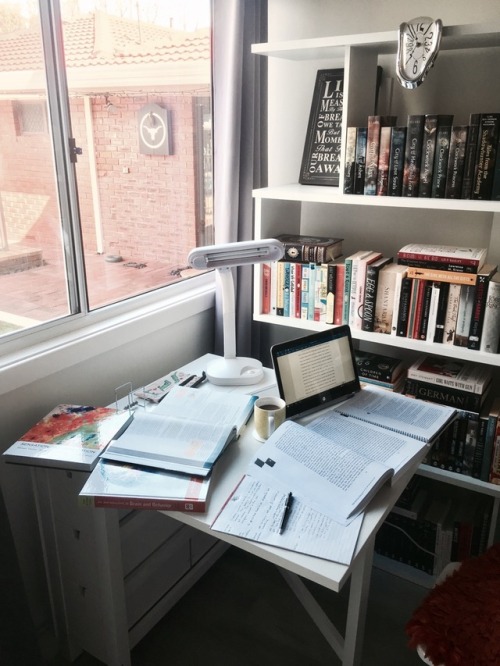
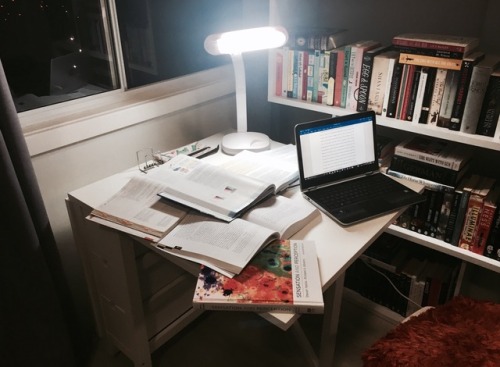

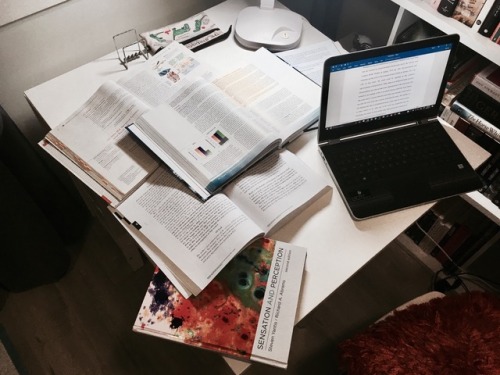
01/10/2017 || Day vs. Night essay-writing


merry trapmas.
all ur faVe christmas songs : remixed!
( listen ) + ( more )
-
 bexfellcry reblogged this · 2 months ago
bexfellcry reblogged this · 2 months ago -
 rwby-heroes-of-light liked this · 8 months ago
rwby-heroes-of-light liked this · 8 months ago -
 pawznacho reblogged this · 8 months ago
pawznacho reblogged this · 8 months ago -
 pawznacho liked this · 8 months ago
pawznacho liked this · 8 months ago -
 lgbt-tree reblogged this · 8 months ago
lgbt-tree reblogged this · 8 months ago -
 gaydontmesswithme224 liked this · 8 months ago
gaydontmesswithme224 liked this · 8 months ago -
 nicodiangeloisliterallymefr reblogged this · 8 months ago
nicodiangeloisliterallymefr reblogged this · 8 months ago -
 nicodiangeloisliterallymefr liked this · 8 months ago
nicodiangeloisliterallymefr liked this · 8 months ago -
 shayberri789 reblogged this · 8 months ago
shayberri789 reblogged this · 8 months ago -
 shayberri789 liked this · 8 months ago
shayberri789 liked this · 8 months ago -
 totallyawesome123 reblogged this · 8 months ago
totallyawesome123 reblogged this · 8 months ago -
 totallyawesome123 liked this · 8 months ago
totallyawesome123 liked this · 8 months ago -
 twadi-gurl reblogged this · 11 months ago
twadi-gurl reblogged this · 11 months ago -
 madeofstarsdust liked this · 1 year ago
madeofstarsdust liked this · 1 year ago -
 butfist reblogged this · 1 year ago
butfist reblogged this · 1 year ago -
 thisisgettingdifficult reblogged this · 1 year ago
thisisgettingdifficult reblogged this · 1 year ago -
 emtjeejooblaa reblogged this · 1 year ago
emtjeejooblaa reblogged this · 1 year ago -
 somepoetryshit liked this · 1 year ago
somepoetryshit liked this · 1 year ago -
 trxangleboy liked this · 1 year ago
trxangleboy liked this · 1 year ago -
 pursuingimmortality liked this · 1 year ago
pursuingimmortality liked this · 1 year ago -
 roraxicdoll liked this · 1 year ago
roraxicdoll liked this · 1 year ago -
 utterlyimpossible liked this · 1 year ago
utterlyimpossible liked this · 1 year ago -
 kuku-doodles liked this · 1 year ago
kuku-doodles liked this · 1 year ago -
 hualojedola liked this · 1 year ago
hualojedola liked this · 1 year ago -
 persijustpa liked this · 1 year ago
persijustpa liked this · 1 year ago -
 cryingunderthewaterfall reblogged this · 1 year ago
cryingunderthewaterfall reblogged this · 1 year ago -
 cryingunderthewaterfall liked this · 1 year ago
cryingunderthewaterfall liked this · 1 year ago -
 zheeer liked this · 1 year ago
zheeer liked this · 1 year ago -
 asdf-account liked this · 1 year ago
asdf-account liked this · 1 year ago -
 blujane liked this · 1 year ago
blujane liked this · 1 year ago

Waddup my name is Charlie, im 21, and i never fucking learned how to study.
241 posts
